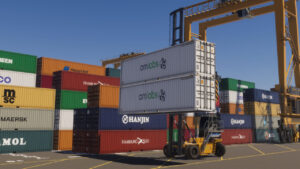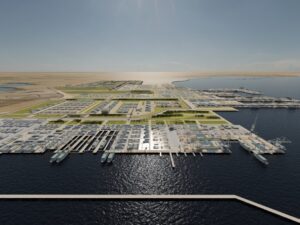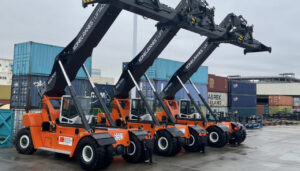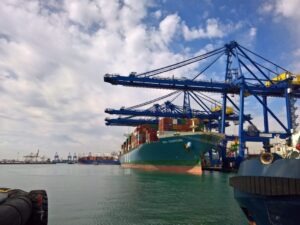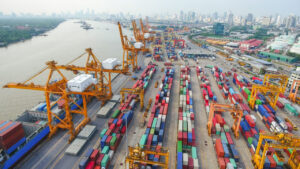chainPORT, a multilateral partnership of world leading ports with the aim of leveraging developments in technology, stressed the importance of innovations such as 5G at its annual meeting last week.
The meeting in the Port of Barcelona, which concluded on December 5, brought together representatives from Hamburg, Antwerp, Shanghai, Barcelona, Busan, Los Angeles, Montreal, Rotterdam and Singapore, as well as McKinsey, TT Club and the Global Institute of Logistics.
According to a statement, the group continued its work of rejuvenating the environment that today’s ports operate in.
Discussions centered on the trend that is seeing the manufacturer and consumer move closer together, causing disintermediation and disruption to the existing supply chain.
This closer relationship – according to McKinsey and TT Club, who briefed delegates from the ‘Container Transport in 2043: Brave New World?’ report – will lead to higher expectations directly from consumers on such as production and costs.
Managers of main global ports meeting at #PortofBarcelona agreed on importance of pressing forward in digitalisation of ports. #ChainPort pic.twitter.com/zG16f2Ag9w
— Port of Barcelona (@portofbarcelona) December 7, 2018
In that vein, discussions focused primarily on digitalization and smart ports, which delegates agreed were central to the drive for data exchange and integration.
To meet future demands, chainPort members agreed that a port’s capacity is no longer measured physically but also digitally.
What does a digital future gold for ports? Find out by reading a Port Technology technical paper
This change is transforming the ecosystem from what was once a supply chain to a supply community of which port authorities are key members and advocates.
The gathering also provided the opportunity for various working groups which make up the initiative to update delegates on their world and set agendas for 2019, which included blockchain, cybersecurity, data standardization and exchange.
Jens Meier, President of the Port of Hamburg and co-founder of chainPORT, said: “Ports have for a long time considered “capacity” mainly in terms of physical infrastructure.
“Traditionally this meant having enough physical space and adequate superstructure to accommodate the demands of port customers.
“However, in today’s era of digitalized industries, we need to see “capacity” in a new light and respond to future demands with smart and digital capacities. The 5 G test field at the Port of Hamburg is an example of this”.
Santiago Mila, Deputy General Manager of Port of Barcelona also commented: “The discussions during the chainPORT meeting showed that flexibility is the key factor for future ports.
“We need to provide ports’ services and infrastructure based on flexibility, reliability and efficiency, not only capacity.
“It is imperative that we draw closer to the cargo owner and be alert to the rapidly changing demands being driven by today’s consumer.”



